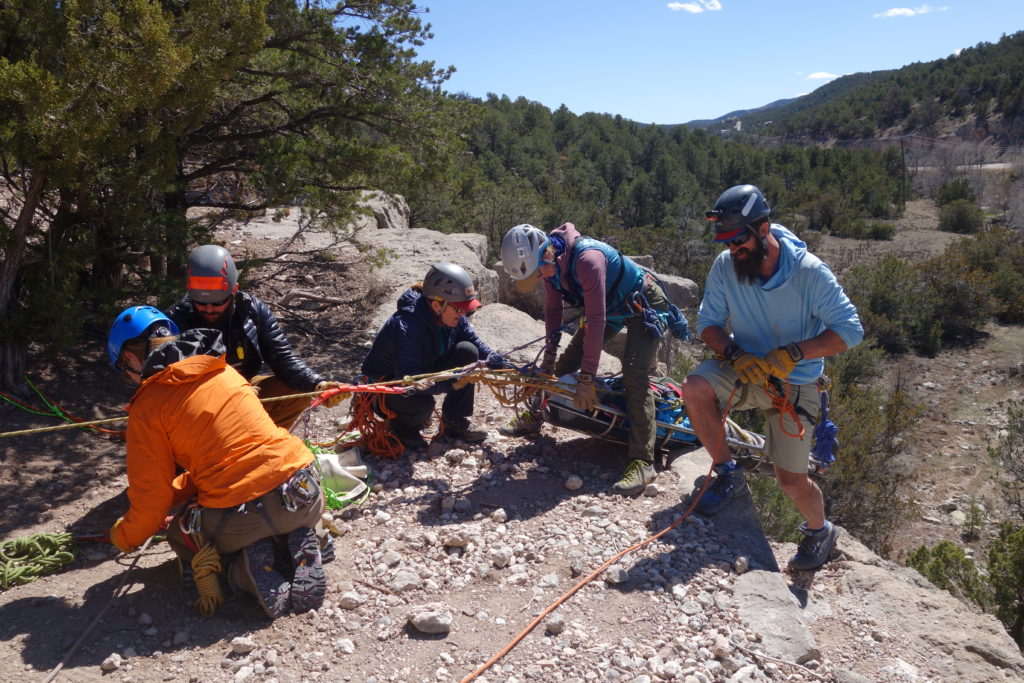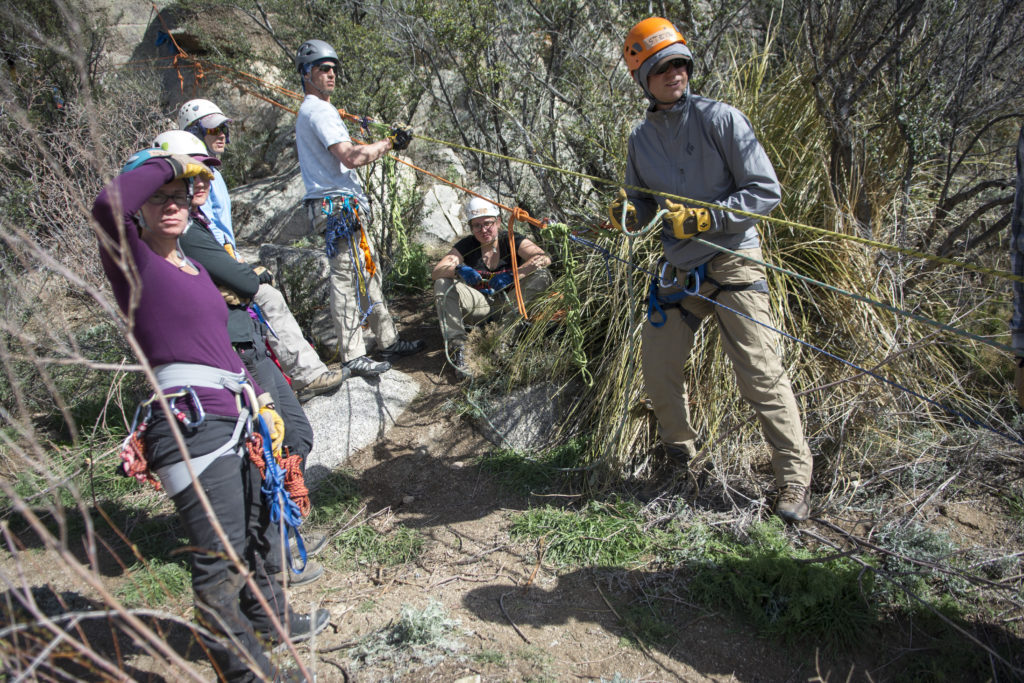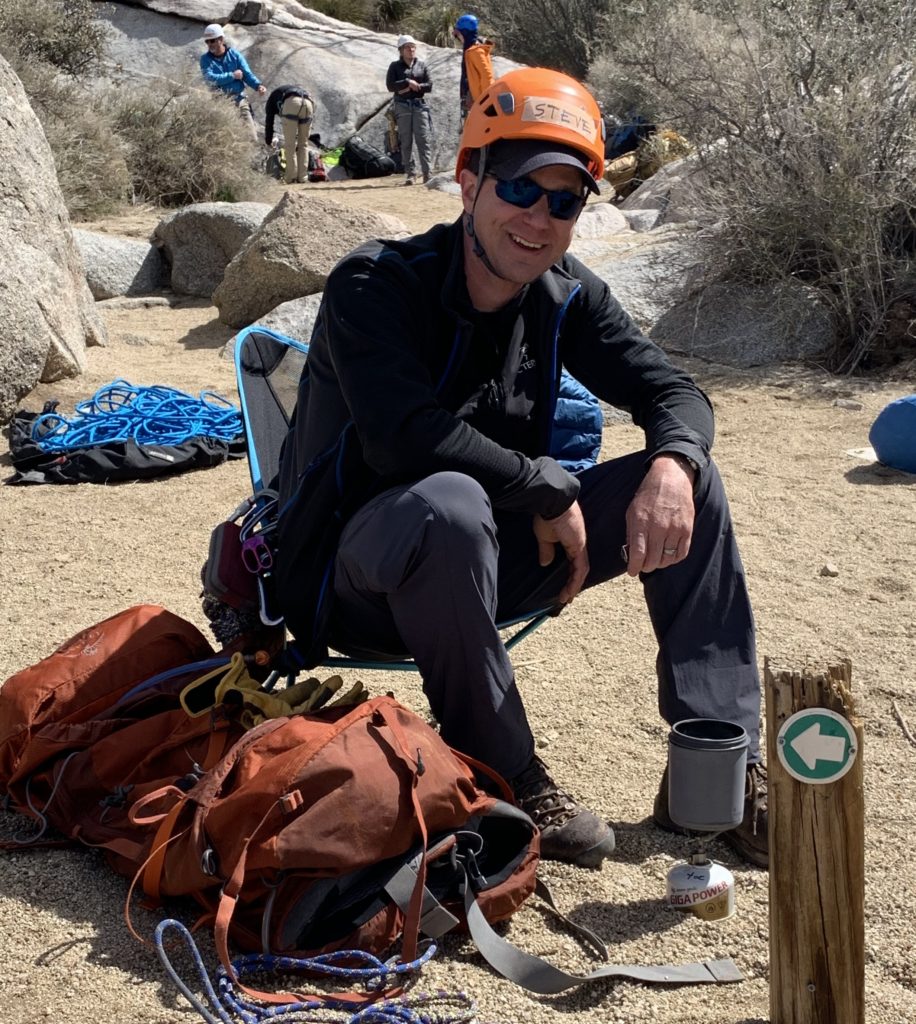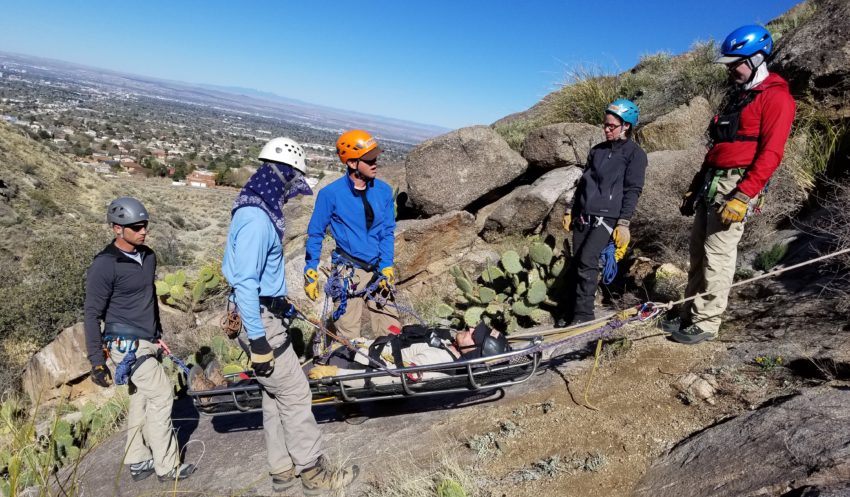I’m lying on a police station floor. Backlit helmeted silhouettes encircle me. I feel the straps tighten around my legs, then my arms.
“That feel OK?” someone asks. I try to make a joke about have to use the restroom.
I’m not being arrested. I’m practicing packaging patients in a litter with my fellow Albuquerque Mountain Rescue Council trainees, and it’s my turn to play an injured hiker. I following along mentally as my teammates check off the steps for safely securing a person for transport out of the wilderness. We’ve learned that these metal stretchers are what we’ll be using in a variety of rescue situations, from miles-long carry-outs to helicopter hoists. It’s critical for the patient’s comfort and safety for us to know how to properly assemble and use them.

This is just one of many skills we’re expected to master in four months of training since being accepted into the AMRC Operational Core Curriculum class of 2019. OCC is a mix of classroom work in police substations and field trainings in the mountains near Albuquerque. It’s been a few years since I’ve sat in a college classroom, but these trainings bring up familiar feelings of wondering if I’m the only student who’s overwhelmed. There are communications and radio frequencies to memorize, books to read, FEMA Incident Command structure to know and medical and legal issues to understand. There’s compass navigation and how to figure out exactly where you are and how to properly relay that information back to base. The Search Theory section is a fascination mix of math and psychology that uses equations and human nature to best determine where to look for a missing person. Then there are the myriad of knots to learn and when to use them, and how to properly anchor ropes for lowering litters and rescuers to patients and safely hoisting them back up to the cliff edge. Kilonewtons, trigonometry, physics and ratios all swirl in my head as I try to remember which anchor method to use and what knots to tie. Most of all, I don’t want to let my teammates down, or any future patients whose care we’re entrusted with.

As the weeks go by the systems and reasoning behind them all begin to make sense. Teammates help one another, and I feel honored to be in a group of such quality people from all different backgrounds and ages. The instructors–all seasoned members of AMRC with rich backgrounds including military, medical, mountain climbing and more–are patient and clear, and make learning all of this cool new information fun. I realize how unique it is to get this level and quality of training, and feel all the more grateful to be spending time with the team. When we successfully lower a mock patient down a cliff or ascend 100 feet on climbing ropes and then rappel back down, the feeling of accomplishment is addicting. We’ll put all of our training to the literal test during a two-day written and overnight field exam this weekend. I’m nervous, but have faith in my training and team.

Written By: Steve Larese
Travel Journalist
AMRC Member in Training
Serious Outdoorsmen

Thank you for your story of training with Albuquerque Mountain Rescue. Our son has been on that team for many years, possibly one of the many instructors you have had. It is a service for those who are injured as well as those who may be lost or disoriented. You will be joining up with the best, and can be proud of your accomplishments.